Brian Cook - Level Up Your Project Management Game - PODCAST TRANSCRIPT
June 10, 2025 at 8:09 p.m.Editor's note: The following is the transcript of a live interview with Brian Cook of Dataforma. You can read the interview below or listen to the podcast.
Intro: Welcome to Roofing Road Trips, the podcast that takes you on a thrilling journey across the world of roofing. From fascinating interviews with roofing experts, to on-the-road adventures, we'll uncover the stories, innovations and challenges that shape the rooftops over our heads. So, fasten your seat belts and join us as we embark on this exciting roofing road trip.
Heidi Ellsworth: Hello and welcome to a Roofing Road Trips from RoofersCoffeeShop. This is Heidi Ellsworth and we are literally on the road for this podcast. I am at the Spray Foam show and I am so lucky to be able to find some time with my very dear friend Brian Cook from Dataforma who I can't believe he's on a podcast. He's on Roofing Road trips. This is so exciting. And so we wanted to do it while we were at the show and Brian, you are at home I am thinking in Pennsylvania. No? Texas.
Brian Cook: Yes. Austin, Texas.
Heidi Ellsworth: So, the weather's not too terrible there for you.
Brian Cook: It was 85 this weekend and it's 65 today, so I'll take both for February.
Heidi Ellsworth: Oh, I love it. And in Daytona right now, it's in the 70's too, so we're doing pretty good, but we are here to talk about Dataforma. We are so excited to have you all on the coffee shop. So, Brian, let's start out with an introduction. You could introduce yourself and tell us about your company.
Brian Cook: So, my name is Brian Cook. I am the Senior Vice President of Dataforma, although I look very junior. I've been with Dataforma I think for 17 years now, so it's been a fun road. Yeah. We came, I say we, I mean I would think I was 18 when they created Dataforma, but I knew the owner of the company and where they created it and I worked there mowing the lawns. I swept up the shop. I interned during summers, interned during college, worked there after college. And that's about the time that the vice president of that company and it was a fairly large but not huge company. We had multiple office locations, multiple divisions and I just remember him saying, "This is crazy that we never know where our company information is. This guy, he has his Outlook and I can't have access to those contacts. And I have no idea where the service department's going today, who's bidding on what job."
It was all these very typical problems and even the shared drive at the office that everybody had, well, he likes to save it under the, yeah, he saves it under the building. So, when we look for it, we never find it. And so I remember when I was interning there, so they tried every generic program that existed, like ServiceMaster or whatever, generic thing and then they looked at the accounting packages and, "Hey, we'll pay you to cover these modules." Those can get pretty pricey. We're talking six figures. And then they come back and it's nothing like we discussed. Then they looked at the really big guys like Salesforce and those are amazing programs, but again, you have to pay an amazing price tag. So then that guy, Daryl Maronic, spent two years talking to Mark Zeleznock and he's still our CEO and Errol is still our president to build Dataforma at night after working as a contractor during the day. And that's how Dataforma came about.
Heidi Ellsworth: I love that story and I really, when you look at some of the best software out there, it is all contractor developed, contractor driven and Brian, you and I have been doing this about, well, I'm a little bit older than you, so I'm not going to say we've been doing it about the same amount of time, but I've known you for a long time and back in the day, if you go way back in the day, it used to be people would be kind of pooh-poohing the fact that it was contractor driven or developed. Today that is the badge of honor. And so to tell that story and to have your principles still driving innovation, understanding the market, I mean, that's a big deal.
Brian Cook: Yeah and I mean it is too because it's even what helped in those early years. I remember when I was very young, we didn't have a ton of, what's that quote? How did you go broke very slowly but all at once. That's our growth. Very slow, then all at once. I remember being worried like, "Man, we're not getting a whole lot of customers. I was like, but I'm like 22. If we go out of business, no big deal. I'll get another job."
Heidi Ellsworth: I'll go somewhere else.
Brian Cook: Yeah, exactly. But once you start getting, because this is such a great industry. The roofing industry, everybody's so tight. So you get five, 10, 15 really good customers who will go to bat for you and call like, Hey, I want you to use Dataforma. Please call so-and-so and he or she is going to tell you that it really works. That's what really fueled our growth in those early years. It was all word and to this day, word of mouth is probably a third of our new business every single year.
Heidi Ellsworth: It is because contractors trust contractors. They want to hear what other people are using and how it's working and if it's working for them. I have been to a number of your user conferences. Really, when I look at Daryl and Mark's involvement in the industry and really understanding it and generational, generational for Daryl with his family, it's so inspiring. So I'm kind of curious as that growth, looking at the growth that you've had since the beginning to today and how not only the growth of sales, but the growth of your mission of really what your passion for helping this industry. Talk a little bit about that.
Brian Cook: Yeah, so it's interesting because I knew that Daryl always intended to be the hub of all of his company's information. You heard him, I don't know where his contacts are, what's the service of, who's bidding that? Where the heck are these documents? But I recognized early on, "Hey, there is a need for commercial service software in our industry and we do that really, really well. So let's make it simple. Let's just tell contractors we do commercial service management, that's what we do. It's simple." And then you're not as invasive in that company or intrusive I should say, because we're just messing with the service team, not everybody else, but we always wanted them to kind of sprawl out through that company like, "Hey, human storage here. You could do some CRM stuff."
And now that we've developed this new functionality for project management, we're noticing instead of signing up with seven or eight users, companies are signing up with 15 or so right off the bat because like, "Hey, I don't have to use this other stuff that I cobbled together. We can all be in a single system." So it was planned growth, but it took a ton of time because think about it, all of this takes a lot of resources to build new functionality. Then we have to maintain it. Okay, there's a mobile app. I understand some of our competitors don't have mobile apps and I get it because it takes a ton of resources. Did you know that when you upgrade it, you have to say, "Apple, do you approve of this upgrade?" And they can say no for anything and then you have to fix it and then get back in line. So I mean, it's a ton. I remember Heidi, you and I met, absolutely we had one programmer, now I think we have 17.
Heidi Ellsworth: Oh my gosh. Holy cow. That kind of growth comes because the contractors are driving you, which means they love it and they're bringing their ideas. I mean, that's when you need all those developers and you're right, we're looking at apps. Apps are crazy and working with them at Eagle View, it's just nuts. But you've really created this culture of success and I love that, Brian, for all of your ... Okay, I'm just going to say one of the things that I love most about Dataforma is that it is a culture of success on all levels. You are not just the sales team, you're not just ownership. You are everyone. You have these amazing super users who understand Dataforma inside and out. Talk a little bit about that culture of success on so many different levels.
Brian Cook: Yeah, well, it's funny too, right? It goes from the bottom to the top. So not everyone knows this, but we're a lot like a family. So a lot of the people that work at Dataforma worked at our roofing company and we don't outsource anything. We don't outsource our customer service. We don't outsource our tech people. So when you call Dataforma and say, "Hey, something's wrong." Shelly answers the phone a lot. Well, to me, Shelly is Mama Forma because I've known Shelly since was 16 years old and I have to send her a picture of my kids every two weeks because she's Mama Forma. So there's this, we want to help. So when you call us, we truly want to help you. It happens every now and then, one of our customer service people will be like, "Hey, I don't know the answer to this question."
And there'll be an all staff email and it's a race to answer it first so we can help that customer out. But it's the same thing. Like I told you, Mark and Daryl are still our owners. We don't have funding from any VC or PE firm. We don't answer to a board. We don't answer to stockholders. Directly to customers.
Heidi Ellsworth: I love it.
Brian Cook: [inaudible 00:09:02] of them are my personal friends, [inaudible 00:09:06] but it's true because when you're that close with everybody and they can say to me, "Brian, you guys really screwed up with this piece of functionality," and they know that I'm going to take it well and say, "Hey, we're going to go fix it," so that when they say something is really good, I know they mean that too.
Heidi Ellsworth: Yeah, they do. I mean, that's the thing that I look at and you're hearing about it from all different sides of the company and you're bringing people in to really give you that information. And I think one of the things that has set you apart. I can remember demos back in the day showing the CRM. CRM how it would, back then it was like, "Oh, we can do marketing from this. You can track all your customers," just like you were talking about that Daryl was pointing out. But today you are so much bigger, I guess is what I'm going to say with CRM, service, project management software that you are really working through. Tell us about that growth too, just in the capabilities of the software and how many different areas you're touching in the company that really expanding the whole roofing company.
Brian Cook: Yeah, I mean, in the perfect world, a contractor using Dataforma, every time they get a call for service or a new bid, it goes directly into Dataforma and that's where it starts and that's where it flows. This is where I track the bid, store the documents, I create my proposal, I mark it as I got the job or didn't, what's my bid close ratio. If it's a service job, what stage of the process, all my documents and then even creating your after the fact, what roof system did we install and what warranty is there. Now, I'll give you a little hint of something I just found out. We started putting some AI into Dataforma. So going forward, there's going to be some really cool stuff like, "Hey, I want a suggestion for the description of this photo. Hey AI, check out all past due invoices and tell me which customers are good or bad." But the real, yeah, pretty cool stuff.
Heidi Ellsworth: And really let's talk just along that line. Let's talk a little bit about project management because I think that's an area that I guess has gotten a lot of attention, but it kind of feels like it hasn't gotten a lot of attention. And I would love to know your thoughts on just what does project management mean to you and how are you making that world easier for contractors?
Brian Cook: Yeah, I mean, you're definitely right that it both gets attention and doesn't, because from a top view, it's just a broad term. It could mean a million different things. What are all the things that could go right or wrong in a job and what are the millions of things that lead to those? That's what I call it. It's the cover your butt stuff. Did we pull a permit to, did we do a punch list? Even things like, because this happened to me, "Hey, did you pull a permit so we can have that crane on the street in D.C. on Sunday?" That's something that has to be done. And what's interesting is contractors are using a hodgepodge of softwares or their own Excel files to do this. So we came out with a [inaudible 00:12:13]. The first was the mobile time card because a couple of our contractors said, "Hey, we're using your app for everything else and we have to pay a lot of money to this company just to have a clock in, clock out. Just build it."
So we built that. Then we said, "It'd be cool, I have my hours. What if I could see how much done we are on the actual roof?" So we built production tracking. So now the foreman can also say, "Hey, I did five squares of this today and we tore off that and we put down some counter flashing." So if I'm a project manager, I can log into Dataforma for anywhere and see, cool, we're 85% done hours, but we're 90% done up on the roof, so we're ahead on this job. And I know that before it's too late because we would all find out two weeks later, "Oh man, we lost our butts on that job." So now we see it every single day. And then we noticed there were third party apps just to do safety reports or things like that. So we built what we call field reports, which each contractor can customize.
So maybe contractor A wants a daily safety check, a safety incident report, a change order from the field report, but they can all customize what questions are asked in those reports. So now I can document what's done. Even toolbox talks, who did what toolbox talk, right? Again, in one system. And then the newest one, which is really cool, we call task manager. So I mean, the world has changed so much since we were contractors. We were always in the office together. Nobody's ever in the office together anymore. I mean, look at, you're in Daytona, I'm in Austin.
Heidi Ellsworth: I know. Yeah.
Brian Cook: Sometimes I have three hours to a job, so I'm not going back to the office that day. So contractors now can say, "Hey, on this job, here's all the things I want to make sure we do." And I can say, "Hey, this task is for Heidi," and then it'll text you, email you or do both. You have to do this and then alerting you until you do it. And if I'm your boss, maybe after three days, I want to know that you haven't done it yet. So I get to say, "Hey Heidi, why the heck haven't you done it?" So now I know that you're and then when you market task complete, it'll tell the next person or people, "Hey, you guys have to now do X, Y and Z." So now it's like the way the world is, we're connected, but we're always apart.
Heidi Ellsworth: Yes, yes. I mean talk about we are connected and that's what your software is doing is continuing to allow people to be connected in a way that you've been doing for decades, but now is in a totally different level. And so I love the fact that you've brought that project management in to help contractors level up with what you just said, with the evolution of remote workers of how do roofing companies really deal with this? And you're talking about it. I mean, you're actually, you're offering solutions.
Brian Cook: The crazy part is Dataforma group here is just from our hard work. So that's why we really love to partner with you just so more contractors can hear about this to know we exist.
Heidi Ellsworth: Let's go back to that a little bit. I want to hit that one more time just a little bit in that and you and I have talked about this a lot, Brian, is that contractors, we kind of have memories of elephants, but yet we don't. It's kind of a weird industry that way. So everybody thinks of Dataforma in one way, but now it is such a different animal and you are bringing so many solutions and so much so talk about that difference between what you think a lot of your customers. I mean, let's talk about your customers right now who signed on, love it. They're using it this one way. What should they be looking at adding and really understanding that now Dataforma can do so much more than it was before?
Brian Cook: Yeah, well, it's true because it's funny. We even talked about that in our management meeting. Some of our old users are our worst users because they've never listened to our upgrades, so we kind of hit them on the head and say, "Hey, this, this." But it's really fun too, because you and I have been around for so long. Every year I will get two or three or four contractors that first looked at us 10 years ago. So while I was in Naples for the inboard meetings and I drove the sea tractor and the owner said, "Holy crap, you've come so far." Even if you've looked at it, look, because truly in the past five years we have skyrocketed. That's where I said we had one programmer, now 17. That's where a lot of that growth came because when people are adding more users to start, our revenue's going up and when old legacy clients are adding more users, we have more revenue. Again, that doesn't get handed out in shareholders, dividends. It goes directly back into the company to say, "Hey, we need more programmers so we can build more."
Heidi Ellsworth: I mean, that is the thing is that you as a software company have to continue to diversify because your contractors, your customers are diversifying. I mean from service and maintenance to obviously new construction, you guys have had that all along. But so I mean, I'm sitting here at the spray foam show. How many contractors are going to be adding spray foam or already did because of material shortages and they are changing the things. So to be with a company that is contractor driven, that is listening to the contractors and for their technology, I think that's what Dataforma, that's what people have to realize. You have to have that.
Brian Cook: Yep, yep. There's an infinite need for software and we just hope we can supply it one piece at a time.
Heidi Ellsworth: Yeah, I love that. So, okay. One of the things that I wanted to talk about too is how contractors should be looking at technology. I think obviously it's a problem solver and it solves the problems that are going on with production or service and maintenance. And a lot of, obviously if you're in service and maintenance, you have national accounts are requiring certain types of software and things, but it is also a differentiator. So as you're sitting in front of that building owner, as you're sitting in front of that facility manager or national account, they expect this. They expect that you are at a high level of technology. Can you talk about that and how contractors need to really level up on all sides with technology?
Brian Cook: Well, yeah, you're so right. And it's interesting. I get requests from clients now like, "Hey, you got to fill out this form." Because multi-building owners, they have a requirements field like, "Hey, does your software do ABCD sometimes?" So it's like it's, "Hey, if you even want to get in the game to bid," you got to have these items. And the same thing too. I mean, I have a friend and this is kind of funny, we have a portion of Dataforma where building owners can log in and he always paid for it. He's like, "You know what's funny, they never use it. But I always sell clients because they think that we're so far more advanced than everyone else because we have this technology. So I get another 20 buildings a year and they never even log in, but they still love us because we have it." Sometimes it's just the cost of admission.
Heidi Ellsworth: Yeah. Well and I think they want to know that you're in the front, right? That you are going to be that company that's going to be able to take care of them, whatever you may need, whether they use it or not, they want to know that you're not just going to give them, I know very few people do this, but a bid on a piece of paper.
Brian Cook: Yes. Well, no, I mean you're right. It just shows, okay, what does it really show? It shows that we care. We tried, we were ahead of the curve. Again, we're not just lagging behind and saying, "Yep, we can do this." It's the same thing with Dataforma. Like I said, we're already working on AI, because we see it coming. It's like, cool, let's incorporate it any way we can get some customer feedback. And then when we get that, what's the next cool way that we can do it?
Heidi Ellsworth: Because it's not going away. It's not going away. We have to incorporate it. You said, we were talking a little bit earlier, but I really want and you're kind of bringing this to the forefront too, is really looking at, it's a cultural shift within your company. And probably not as much as 10 years ago when we were talking about this, where you have to get your company to make a cultural shift towards technology. But I think there's still some of that and how do you help the companies culturally make the shift from paper, from files, from filing cabinets to technology and really using it?
Brian Cook: I think and this is funny, because I do make a joke in every demo that we are the last solo company in the world that answers the phone. And I think that puts a lot of people at ease. No, truly, every time I say that, they will laugh because it tells them, again, not some massive corporate structure. And again, if anyone would see me, it helps that we look like we're from the roofing industry. I'm a lumbering six foot, 245 pounds. I don't look like a software person. So it really does help that like, "Hey, we look like you, we speak like you. We just got lucky and made this software. So now I type every day instead of on the roof." I think that truly showing them that, "Hey, all the things that you've thought of and asked about, we've already covered, we know it." And I think that's a big part of it.
And then our training team even So when you come on, it's not like a bunch of generic softwares where you just go off into the wilderness. We train you, you get a dedicated trainer to go through all of your training sessions with Dataforma, same person every time. We record the sessions and send them to you. When you have questions, you call in, we never charge you. I think those are the things that make it a lot simpler to affect this change. But certainly 18 years ago, it was not easy to get people to use computers and silly in certain companies it's the same, but we just ease it and show them like, "Hey, we've thought of all those questions that you're asking. We've thought of it."
Heidi Ellsworth: You are so right. I mean, when we started RoofersCoffeeShop started in 2002. Most contractors didn't even have a computer on their desk, so they were still having one computer in the whole company and printing out the emails and putting them in the inbox. But I think today, obviously that's totally different, but there's still, we are a relationship industry. We believe in relationships. We believe in picking up the phone. We believe in helping each other and going to that next level. And that's not just within the contractors in the industry. That's with their customers, with their community, their building owners.
And so Brian, you guys, you rock. And I tell you what, congratulations on the addition of your project management. I'm excited to do a little bit more on that and we're going to be having some articles come out. We're going to be talking more about that because project management is so key. And then combining that with the long-term service and maintenance, you guys, you've got it dialed.
Brian Cook: Thank you. It is such a pleasure to finally be on your show.
Heidi Ellsworth: I know. I love it so much. Okay, how can people get started with Dataforma?
Brian Cook: The best thing is go to dataforma.com, request a demo. They come direct to me, so if you want a direct demo with me, you can just put it in the notes. Otherwise, we'll see. Yeah, you can deal with Brad, but that's the best way. And then demos take 30 or 45 minutes. I don't stretch them out. So that way you know exactly what you're getting into. Obviously we go to all the major trade shows, IRE, SA, NERCA, MRCA, Western States, which other ones did we go to? Everyone, not all the ones Heidi's at, but most of them.
Heidi Ellsworth: Most of them.
Brian Cook: So if you want to see [inaudible 00:23:29].
Heidi Ellsworth: And you're on a majority of boards too. Dataforma gives back so much to the associations and the Roofing Alliance, NRCA, Western States, MRCA, you guys rock. I mean, you really give back so much to the industry. So that's a great place to spend time with you to really through it on that. But of course you can find them on RoofersCoffeeShop in the directory and also on our Coatings coffee shop, which you see behind this in directory. You can find Dataforma and get all that information, get a hold of Brian and take your business to the next level. That's what it's all about.
Brian Cook: At least give us a look. You won't mad about the [inaudible 00:24:07]. It won't be wasted.
Heidi Ellsworth: That is awesome. Hey Brian, thank you so much. Thank you. While I'm doing at a trade show, we're on air right now and it's awesome to have you a part of the show, even though you are in Austin, Texas right now.
Brian Cook: All righty. I appreciate it so much. Thank you.
Heidi Ellsworth: Thank you. Thank you everybody. Thank you for listening. Please check out the Dataforma directory on RoofersCoffeeShop and also all of our podcasts under the read, listen, watch navigation, look for Roofing Road Trips and on your favorite podcast channel. Be sure to subscribe and set those notifications so you don't miss a single episode. We'll be seeing you next time on Roofing Road Trips.
Outro: If you've enjoyed the ride, don't forget to hit that subscribe button and join us on every roofing adventure. Make sure to visit ReuversCoffeeshop.com to learn more. Thanks for tuning in and we'll catch you on the next Roofing Road Trip.



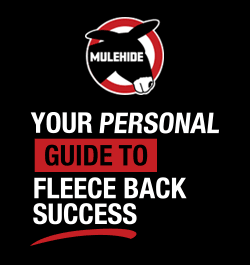





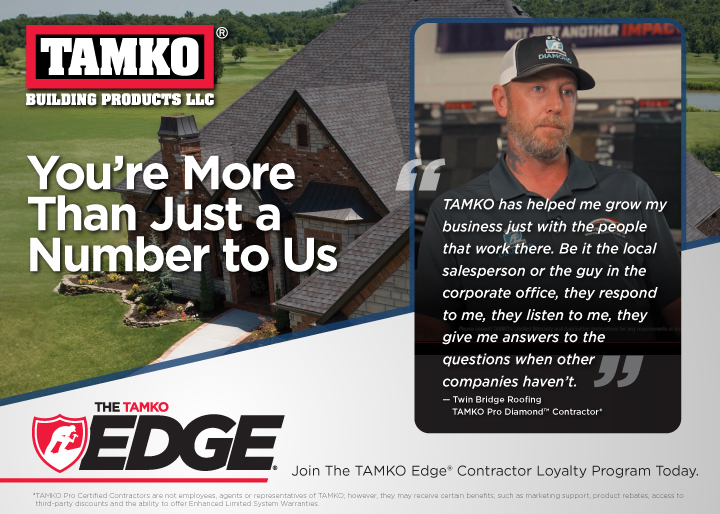

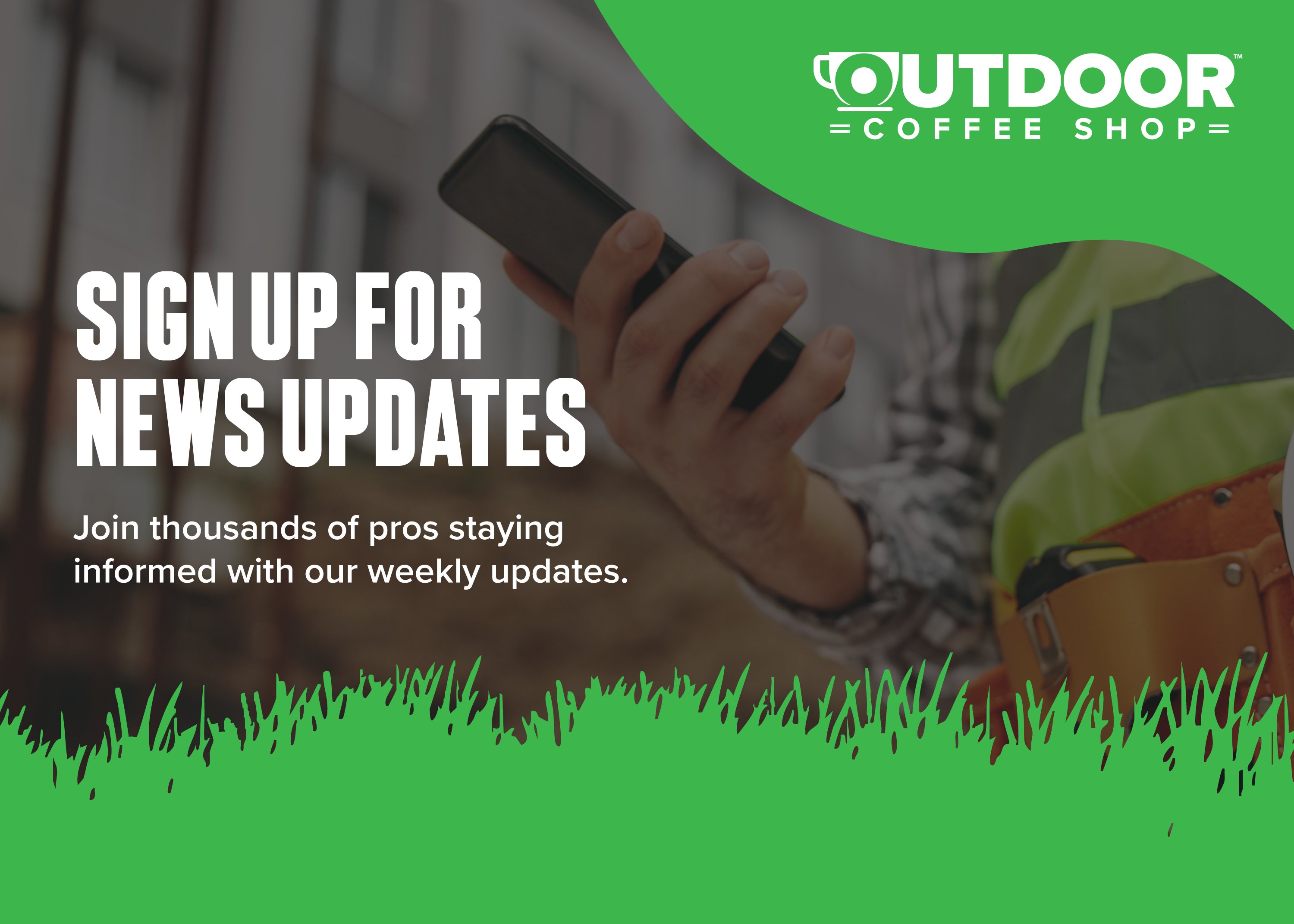


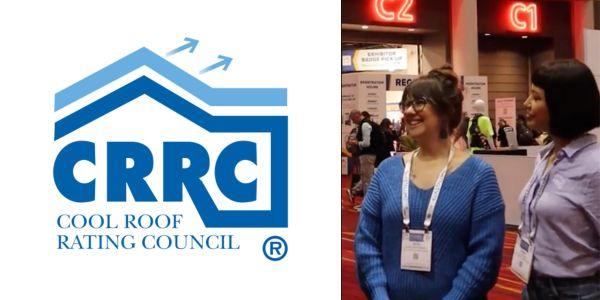
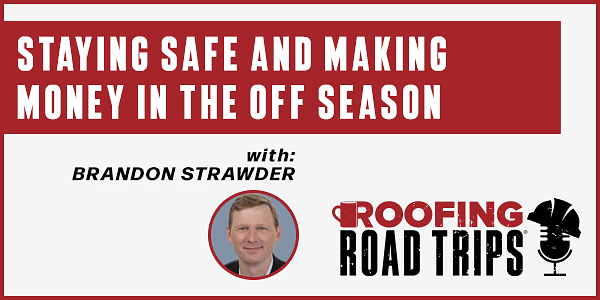
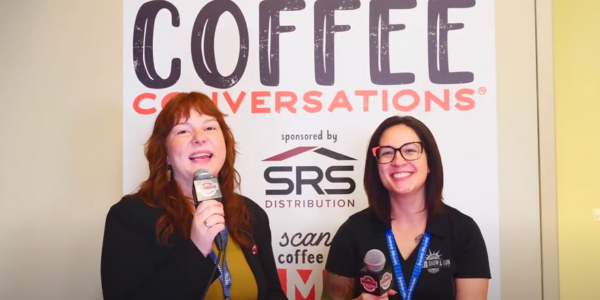



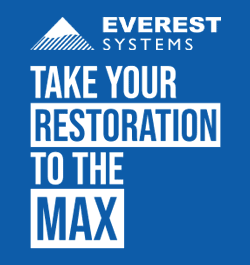

Comments
Leave a Reply
Have an account? Login to leave a comment!
Sign In